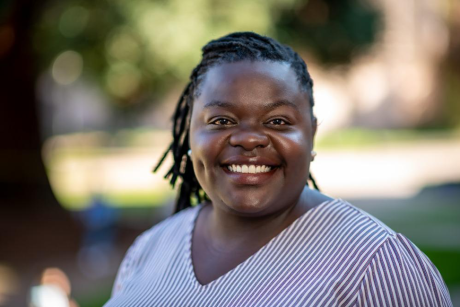Published June 30, 2008, last updated on March 8, 2013 under Research News
DGHI fieldwork participants have come to understand that a successful project is not only about crafting a strong protocol or research procedure, but also learning to cope with unforeseen obstacles and managing problems as they arise. They have been able to persevere in their research despite problems related to social and work pressures, motivation, and indifferent officials.
Just starting her project in Podgorico, Montenegro, Jovana Pavisic has learned the prerequisite of interviewer-subject trust in her assessment of the status of commercial sex workers, as its absence slows down the trickle of volunteers for the study. Jovana hopes to remedy this problem while volunteering in an outreach program on slow office days. Besides that, she has found time to trek to a microbiology lab where she was able to apply knowledge she learned in class.
The DGHI team in Moshi has come to understand unique aspects of Tanzanian culture through conducting interviews. The primacy of the family and of respecting institutional rules is strong there; patients always have a family member by their side and even in disasters, relatives patiently wait for news of injured loved ones outside of the clinic in sweltering heat. Whitney Woodhull describes the talks she had with families waiting for news about victims of a terrible bus accident, “We asked our translators (now, our very good friends) why the people were hanging outside the hospital gate. And the boys responded, ‘It’s not visiting hours yet’… These people would be waiting for another 3 hours before being let inside to see their loved one, if they were even still alive…The answers were sad, but blunt- No one brings them water, food, or places to sit. They have their faith and each other to comfort them in this heat, and it won’t be until noon that their hopes will be confirmed.”
At a global health lab in Singapore, Mary Bohan and Tammy Chin have come to understand the pressures of a research experience. As Tammy has started to sequence the entire genome of different virus strains, she understands and experiences how “extracting DNA out of the gels, making PCR master mixes, and isolating RNA from the viral supernatants takes a lot more time and concentration than most people will think”. Thrust into an unfamiliar research position, Mary copes with the stress of not only advancing her own project, but several others as well – “if I [Mary] do something incorrectly, my cells will become contaminated, which means the work of everyone else in the lab will have to be thrown out”. Through this adversity, she has acquired a greater appreciation of the time and effort that goes into “one experiment, one paper”.
Just starting his project in Costa Rica, Tony Zhang is made aware of the pitfalls of self-gratification and seeks to move his research beyond a means to reaffirm his ego and make a lasting impact over the next 8 weeks: “I’m here not just volunteer… I want to be here to create impact, not just to enhance my own cultural understanding, “leadership and social skills,” and research skills. These factors are extremely important for me. But…I feel that these factors do have to come in second before the rigorous work and raw outcome I sincerely hope to produce…. Gail has done this for thirty years, I hope that at the very least, my eight weeks can mean something far more significant than a basic research report or something I can tell my friends back home that I did. These are real life issues. I hope to be open-minded, and be ready to adapt to and overcome many challenges, yet still hold on to my core values and beliefs in these next couple of weeks.”
In Pune, India, Sweta Saxena works under DISHA and SureStart programs to evaluate the level of HIV/AIDS awareness among high risk groups, enabling policy makers to tailor specific approaches against HIV/AIDS. The continual postponement of meeting with SureStart leaders was finally taken care of when she combined the two components (DISHA and SureStart) of her project together; voiced concerns of rushed interviews were solved with the rescheduling of patient discussions to the afternoon; fellow coworkers’ worries of ‘what to write down’ were solved with Sweta’s reassurances.
As projects progress and near completion, DGHI students will seek to translate their results into broader understanding and possibly meaningful recommendations. And, much like how the Moshi team has responded to new concerns of albino discrimination and community needs previously not included in their projects, fieldwork participants will attempt to impact the local community beyond original ideas and preconceptions. With a progressive and creative mindset, such an impact will hopefully be significant and long-lasting.


